Denver School of Forms & Poetics
June 12–24, 2023
The Denver School of Forms and Poetics, a summer program of the Department of English and Literary Arts at the University of Denver (DU), focuses on aesthetic forms and critical poetics. It provides a forum for the exploration of the unique as well as the interactive capabilities of creative writing and literary studies.
In four- and six-hour seminars over a two week period (June 12–24), DU and guest faculty, many of them significant voices in their fields, discuss creative ideas and critical approaches with imagination and insight. Cosmopolitan and innovatory in character, the aims of the Denver School of Forms and Poetics include the interdisciplinary expansion of intellectual boundaries and transcultural studies of form and meaning.
Advanced seniors contemplating graduate studies and graduate students already furthering their professional development are bound to find the experience particularly helpful. So too will high school teachers and all individuals principally interested in knowledge as well as a dynamic vision of the world.
Among other benefits, the Denver School of Forms and Poetics helps students develop a robust critical education that aligns with their creative education, or vice versa, and current literary practices. It also facilitates access to enriching ideas and methods, engaging faculty and engaged participants, and a blend of curricular and co-curricular activities.

Register for the Denver School of Forms & Poetics
Program Highlights
Seminars & Mini-Seminars

Guest Lectures

Guest Readings
Special Sessions
Conferences
Seminars
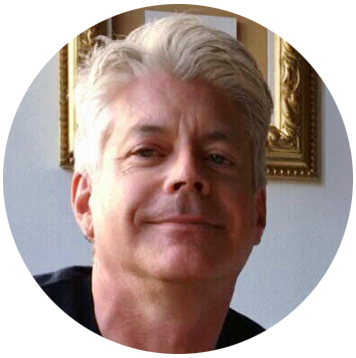
Uncovering Queer Russian Poetics
6 hours (2 hours daily, TWR) | Modality: HYFLEX
Dr. Luc Beaudoin
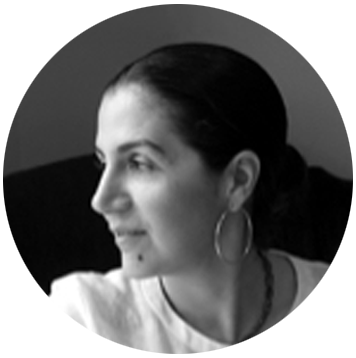
Translation and Creative Writing, a Cross Pollination
6 hours (2 hours daily, TWR) | Modality: HYFLEX
Dr. Poupeh Missaghi
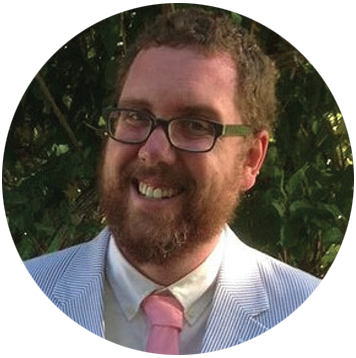
Fragments, Ruins, and Things Left Unwritten
6 hours (2 hours daily, TWR) | Modality: HYFLEX
Dr. R.D. Perry
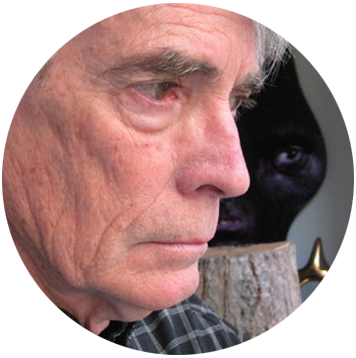
Reading, Writing, and Arithmetic: Poetry for All
6 hours (2 hours daily, TWR) | Modality: HYFLEX
Dr. Bin Ramke
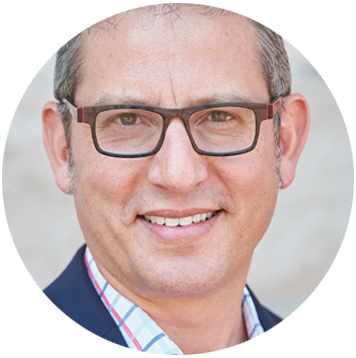
Form & Function:
Form & Function: An Introduction to Narrative Theory
6 hours (2 hours daily, TWR) | Modality: ZOOM
Dr. Adam Rovner
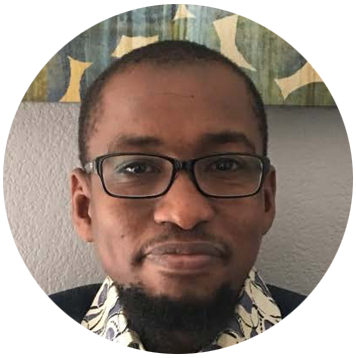
Poetics/Politics of Identity in the Francophone Caribbean
6 hours (2 hours daily, TWR) | Modality: ZOOM
Dr. Mamadou Moustapha Ly
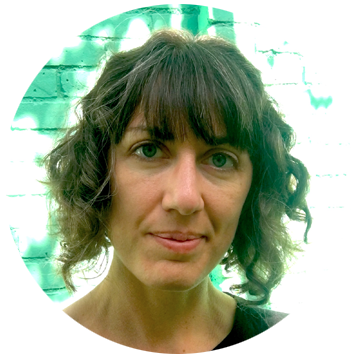
Portraits and Repetition
6 hours (2 hours daily, TWR) | Modality: HYFLEX
Dr. Kelly Krumrie
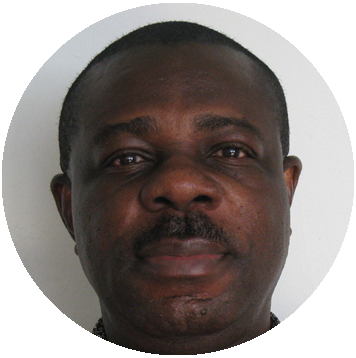
The Global Canon and the Literary Imagination
6 hours (6 hours, with breaks, TWR) | Modality: HYFLEX
Dr. Maik Nwosu
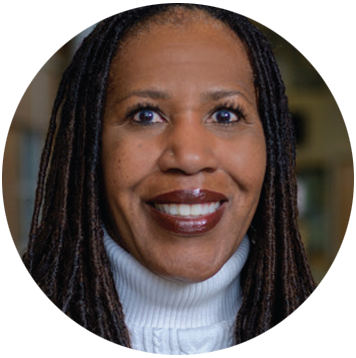
Race and Rhetoric(s)
4 hours (2 hours per session, F) | Modality: HYFLEX
Dr. Sheila Carter-Tod

Working with Dreams:
A Generative Workshop
4 hours (2 hours per session, F) | Modality: HYFLEX
Patrick Cottrell and Sarah Gerard
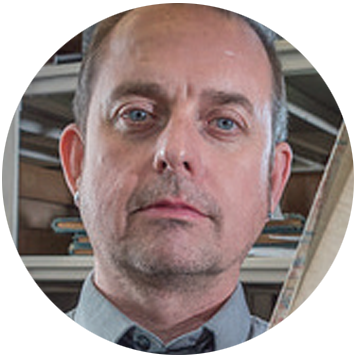
Creative Criticism
4 hours (2 hours per session, F) | Modality: HYFLEX
Dr. Billy J. Stratton
Register
Ready to immerse yourself in the study and creation of literature and aesthetics across styles, forms and cultures? Register now through the link below.
Tuition
The total cost for this two-week summer program is $1,200. Applications for one week of the program will also be considered at a rate of $600. A tuition discount of 10 percent is available to DU alumni, veterans and early registrants who submit applications by May 13.
About the Program
The Denver School of Forms & Poetics offers a rare chance for students to grow their creative and critical skills while also developing greater intercultural sensitivity and emotional intelligence, skills that align with DU's Impact 2025 plan to develop artists, educators, professionals and leaders who use their scholarly abilities to advance the public good.
Seminar Descriptions and Faculty Biographies
-
Uncovering Queer Russian Poetics | Dr. Luc Beaudoin
Uncovering Queer Russian Poetics
6 hours (2 hours daily, TWR) | Modality: HYFLEX (Zoom and In-Person)
Dr. Luc Beaudoin
Course Description
Over the past one hundred years, Russian poets have engaged in extended conversations that span generations, keeping alive arguments about poetic style, the writer's place in society, revolution and politics. Some of the more intriguing conversations are ultimately about sex—about homosexuality specifically, about its place in Russian society, about its Russianness or foreignness. The polemics are (self-) referential, often personal, sometimes vindictive, usually censored by imperial, and later by Soviet, government functionaries.
These artistic dialogues have been grounded in questions of queer identities, poetics, and silences, with more meaning often quietly implied than readily spoken. The arguments resonate even more today, when queer speech in the Russian Federation is effectively outlawed, when the existence of open queer discourse is one of the primary pretenses for the invasion of Ukraine. This seminar will explore that queer artistic conversation, using selections in translation from works by Mikhail Kuzmin ("The Trout Breaks the Ice") and Anna Akhmatova ("Poem Without a Hero"), as well as from Marina Tsvetaeva, Anatoly Shteiger, Valerii Pereleshin, and Slava Mogutin.
We will begin with a discussion of Vasilii Rozanov's 1911 book, People of the Moonlight, a psycho-spiritual apology for same-sex desire that saw wide readership in the late Russian Empire, a society that had decided that the 1895 trial of Oscar Wilde was primarily a poetic persecution. People of the Moonlight sets the tone for late imperial Saint Petersburg, arguably the place to be queer at the time and the starting point of our investigative journey. World events would quickly silence that spirit of sexual and artistic experimentation, but the poets continued their discussion, often in the face of official and sometimes fatal retribution, later (and today) only in exile.
Faculty Biography
Luc Beaudoin is professor in Gender and Women's Studies at the University of Denver. In 1993, after receiving a Ph.D. in Russian Language and Literature from the University of Toronto, he came to DU to head the Russian Language and Literature Program. In 2011 he joined DU's administration in the Office of Internationalization, returning to the faculty in GWST in 2020.
His research concentrates on the expression of queer exile in writers from the Russian diaspora as well as from the Portuguese, Brazilian, French, and German émigré communities scattered around the globe. His most recent book, Lost and Found Voices: Four Gay Male Writers in Exile was published in late 2022 by McGill Queen's University Press.
-
Translation and Creative Writing, a Cross Pollination | Dr. Poupeh Missaghi
Translation and Creative Writing, a Cross Pollination
6 hours (2 hours daily, TWR) | Modality: HYFLEX (Zoom and In-Person)
Dr. Poupeh Missaghi
Course Description
The seminar will focus on the intersections of translation and creative writing as two practices in the field of literary arts and studies. In our first session, we will learn about some key theoretical concepts of translation studies. In our second session, we will look at different types of texts produced by translators—such as essays, creative work, annotated translations, as well as interviews and memoirs—discussing translation, both as a general concept and through the lens of their individual practices. In our third session, we will talk about going beyond traditional concepts and forms of translation and use experimental and innovative approaches to translation and multilingualism.
At the end of each session, participants will be invited to reflect on the material offered, discuss how the new knowledge of translation can inform their practice as thinkers and creators, and try their own hand in similar practices. Some of the scholars and practitioners to be discussed are Benjamin, Jakobson, Nida, Newmark, Koller, Venuti, Munday, Bassnett, Allen, Bernofsky, Weinberger, Riggs, Gansel, Waldrop, Myint, Hawkey, Antena Group, Knight, Araghi, Mohammadi, Sharif, and Karimi. Knowing another language is not mandatory for participation in the seminar.
Faculty Biography
Poupeh Missaghi joined the English Department at the University of Denver in the Fall of 2022 as an Assistant Professor in Literary Arts and Studies. She is a creative writer, scholar, editor, and translator (between English and Persian). Her debut novel trans(re)lating house one was published in 2020 (Coffee House Press) and her translation of Nasim Marashi’s novel I’ll Be Strong for You in 2021 (Astra House).
She has a PhD in English and Literary Arts from the University of Denver; an MA in Creative Writing from Johns Hopkins University, Baltimore, MD; and an MA in Translation Studies and a BA in Translation Practice from Azad University, Tehran. Prior to DU, she taught at Pratt Institute, Brooklyn, NY, City University of New York, and Pacific Northwest College of Arts, Portland, OR.
-
Fragments, Ruins, and Things Left Unwritten | Dr. R.D. Perry
Fragments, Ruins, and Things Left Unwritten
6 hours (2 hours daily, TWR) | Modality: HYFLEX (Zoom and In-Person)
Dr. R.D. Perry
Course Description
Incomplete literary works are ubiquitous, although there are various causes for their incompleteness. Sometimes, history and the vagaries of transmission cause us to lose texts, either completely or in part.
Such is often the case with older works, like the fragments left to us by Sappho, or the Old English poem “The Ruin,” which is about ruins but is also itself ruined. Other times, authors leave their own works unfinished, either by choice or due to forces beyond their control. Langston Hughes and Zora Neale Hurston never brought their play, Mule Bone, to a conclusion due to their personal conflicts and Samuel Taylor Coleridge’s opium-addled memory prevented him from writing any more of “Kubla Khan.”
What’s more, incomplete literary works have a variety of effects. These works can present something of a challenge to scholarship: our assumptions about works of art tend to favor those that are finished, allowing us to understand how their different parts relate to the whole. Works without that clear sense of completion—like Franz Kafka’s novels and their relationship to some of his shorter prose pieces—lead to uncertainty about the boundaries of the work and even—as in Kafka’s case—lawsuits.
These same works of art, though, have also served as inspiration: different authors will often attempt to bring the works to completion, creating new works out of the old. Geoffrey Chaucer’s The Canterbury Tales gave rise to a veritable industry of continuations, from the fifteenth century to the last decade.
This seminar will work to make something out of fragmentary, ruined, or incomplete works. We will discuss strategies for understanding them aesthetically and what opportunities they may afford us creatively. Rather than see these works as a cause for lamentation, we will them use them as a source for our own creative and critical explorations.
Faculty Biography
R. D. Perry received his PhD from the University of California Berkeley in English and Medieval Studies, with a Designated Emphasis in Critical Theory. He is currently working on two books, one on the importance of coterie poetics for the formation of the English literary tradition and one on the aesthetics of incompleteness in Chaucer’s The Canterbury Tales.
His essays have been published or are forthcoming in Literature and Medicine, Studies in the Age of Chaucer, Speculum, and Poetics Today. He is also working on essays related to mid-20th century intellectual culture, Hannah Arendt, and Immanuel Kant.
-
Reading, Writing, and Arithmetic: Poetry for All | Dr. Bin Ramke
Reading, Writing, and Arithmetic: Poetry for All
6 hours (2 hours daily, TWR) | Modality: HYFLEX (Zoom and In-Person)
Dr. Bin Ramke
Course Description
Well, not so much arithmetic as certain ideas from “higher” mathematics that might as well be poetry.
We will read and write, and think about such things as what John Conway’s “The Game of Life” can teach us about how words work. Most of our thinking during these three days will happen on the page, through collaborations and individual work responding to prompts given by me, prompts which, like any real mathematics as well, take us to surprising results.
We will also think about etymologies, the individual stories of individual words through history, which means noticing how language is a kind of geometry, a measure of the very land it lives on. But at no time will we expect two and two to make four.
Faculty Biography
Bin Ramke, former editor of a literary journal and a poetry book series, teaches literature and creative writing at the University of Denver where he holds the Phipps Chair and is a Distinguished Professor. During his childhood in the south he intended to become a mathematician, and then a sculptor, but after majoring in English at LSU he eventually received a PhD in modern literature from Ohio University.
He taught in Columbus, Georgia prior to arriving at the University of Denver in 1985. For many years he taught fall terms at the School of the Art Institute of Chicago. His first book won the Yale Younger Poets Award, and he has since published thirteen more books of poems, most recently Earth on Earth (Omnidawn, 2021).
-
Form & Function: An Introduction to Narrative Theory | Dr. Adam Rovner
Form & Function: An Introduction to Narrative Theory
6 hours (2 hours daily, TWR) | Modality: ZOOM
Dr. Adam Rovner
Course Description
This seminar presents an introduction to critical methods associated with classical narrative theory. We will trace the development of narrative theory from Russian Formalism through to Structuralism and Narratology. Our focus will be on defining and understanding “literariness”—that which makes a given work a work of literature.
Students will read seminal work from thinkers identified with these varied yet interwoven critical approaches, and will consider the diachronic development of narrative theory. Through lectures, discussion, and “laboratory” work, participants will learn to apply the tools of these methodologies to the interpretation of literary texts.
Influential theorists we will consider include: Viktor Shklovsky, Roman Jakobson, Boris Eikhenbaum, Jan Mukarovsky, Tzvetan Todorov, Roland Barthes, Gérard Genette, and Shlomith Rimmon-Kenan.
Faculty Biography
Adam Rovner is Associate Professor of English and Jewish Literature. He came to DU in 2008 after serving as Assistant Professor of Hebrew and Director of the Hebrew Program at Hofstra University (2006-08). Adam received his MA in comparative literature from the Hebrew University of Jerusalem (1998) and his PhD from Indiana University-Bloomington (2003).
His articles, essays, translations and interviews have appeared in numerous scholarly journals and general interest publications. His book, In the Shadow of Zion: Promised Lands Before Israel, was published by NYU Press (2014). He is quite possibly the only person ever to have had a peer-reviewed article also win a science fiction award. In 2015, he served as a Lady Davis Fellow at the Hebrew University of Jerusalem.
-
Poetics/Politics of Identity in the Francophone Caribbean | Dr. Mamadou Moustapha Ly
Poetics/Politics of Identity in the Francophone Caribbean
6 hours (2 hours daily, TWR) | Modality: Zoom
Dr. Mamadou Moustapha Ly
Course Description
Identity is not given once and for all; it is constructed and transformed over time.
— Amin Maalouf, In the Name of Identity: Violence and the Need to Belong.This seminar examines the (re)nascence of a Francophone Caribbean identity or rather identities during and after the “moment(s) of entanglements,” historically known as slavery and colonialism. These renowned systems of oppression, otherization and discrimination have left indelible marks on the peoples of the Caribbean in general and Martinique in particular.
Referencing the paradigmatic movements of Negritude and Antillanité (Caribbeanness) in the foundational works of Aimé Césaire, Frantz Fanon, and Édouard Glissant respectively in Discourse on Colonialism, Black Skin, White Masks and Caribbean Discourse or Poetics of Relation, we will analyze poetically and politically the emergence of distinctive identities over time and space.
Faculty Biography
Mamadou Moustapha Ly graduated from the University of Michigan in Ann Arbor with a Ph.D. in Romance Languages and Literatures (French and Francophone Studies) and a graduate certificate in African and African American Studies. He is an Assistant Professor of French and Francophone Studies at the University of Denver. He specializes in postcolonial literatures and studies in the Francophone Caribbean and the Black Diaspora in general.
His publications on the postcolonial African novel of disillusionment and in Francophone Caribbean literature have appeared in international journals such as The French Review, Journal of African and Postcolonial Studies, Dalhousie French Studies. His book, Le Nouvel Édouard Glissant: De l’opacité poétique à la limpidité [The New Édouard Glissant: From Poetic Opacity to Political Limpidity], was published by Connaissances et Savoirs in its Non-Western Literatures in August 2021.
-
Portraits and Repetition | Dr. Kelly Krumrie
Portraits and Repetition
6 hours (2 hours daily, TWR) | Modality: HYFLEX (Zoom and In-Person)
Dr. Kelly Krumrie
Course Description
In this seminar, we will explore the relationship between portraiture and writing by looking at the work of Gertrude Stein. Stein (1874-1946) wrote hundreds of short texts she called “portraits” that attempted to render people—such as Pablo Picasso, Henri Matisse, and Henry James—in language. She also wrote “portraits” of food, objects, and places (like (not so) still lifes or landscapes). But how does one write a portrait? How are Stein’s portraits, made from words, (un)like painting, photography, or film? Tied up in this is movement, insistence, and Stein’s theory of repetition: how might a portrait repeat? Alongside reading some of Stein’s portraits and looking at visual ones, we will experiment with writing our own.
Faculty Biography
Kelly Krumrie is the author of Math Class (Calamari Archive, 2022). Her creative and critical writing appears in journals such as Black Warrior Review, DIAGRAM, Full Stop, and The Explicator. She also writes a column for Tarpaulin Sky Magazine called “Figuring” on math and science in art and literature. She serves as a contributing editor for Annulet: A Journal of Poetics and as an editor for a row of trees, a sonic art journal. She holds a PhD in English & Literary Arts from the University of Denver.
-
The Global Canon and the Literary Imagination | Dr. Maik Nwosu
The Global Canon and the Literary Imagination
6 hours (2 hours daily, TWR) | Modality: HYFLEX (Zoom and In-Person)
Dr. Maik Nwosu
Course Description
For the effect of genius is not to persuade the audience but rather to transport them out of themselves. — Longinus, On the Sublime
The question of what constitutes a literary classic or the canonicity of specific literary works is as engaging as the answers sometimes (or often) tend to be contentious. Is Homer indeed “pre-eminent among poets,” as Aristotle notes in his Poetics? Is Shakespeare the center of the canon (“Without Shakespeare, no canon”), as Harold Bloom insists in The Western Canon? And does the canon truly exist “in order to impose limits, to set a standard of measurement that is anything but political or moral”? Are those limits national or regional or global?
Focusing on different parts of the world (Africa, Asia, Europe, and the Americas), we will examine the idea of the classic, including how to (re)read a literary work; the process of canon formation; the global canon in theory and praxis; and the future of the canon in relation to the trajectories of the literary imagination.
Faculty Biography
Maik Nwosu is Professor of English specializing in African, African Diaspora, postcolonial, and world literatures; semiotics and critical theory. He worked as a journalist (and received the Nigeria Media Merit Award for Journalist of the Year) before moving to Syracuse University, New York for a Ph.D. in English and Textual Studies. Nwosu is a fellow of the Akademie Schloss Solitude, Stuttgart, Germany; the Civitella Ranieri Center, Umbertide, Italy; and the Stellenbosch Institute of Advanced Study, Stellenbosch, South Africa. He is also a member of the Phi Beta Delta Honor Society for International Scholars.
Nwosu's published works include fiction (A Gecko's Farewell, Alpha Song, Invisible Chapters, and Return to Algadez), poetry (Suns of Kush), a coedited anthology (The Critical Imagination in African Literature: Essays in Honor of Michael J. C. Echeruo), and critical studies (The Comic Imagination in Modern African Literature and Cinema: A Poetics of Laughter and Markets of Memories: Between the Postcolonial and the Transnational).
-
Race and Rhetoric(s) | Dr. Sheila Carter-Tod
Race and Rhetoric(s)
4 hours (2 hours per session, F) | Modality: HYFLEX (Zoom and In-Person)
Dr. Sheila Carter-Tod
Course Description
This seminar will explore the intersections of rhetoric and race by focusing on various themes and dimensions for understanding race as a discursive concept that so profoundly impacts our society, culture, and public discourse.
By looking at the rhetoric(s) of race, we will theorize, critique, and apply ways of communicating about race and racialization—linguistically, socially and educationally. We will identify and analyze “race" as rhetorically constructed and situated socio-historically, as well as explore critical theories of race, racialization, and racism in written communication and Writing Studies pedagogy and practices.
Faculty Biography
Sheila Carter-Tod joined DU this fall (2021) as the Executive Director of Writing Programs and Associate Professor of English. She formerly directed both the Composition Program and Curricular and Pedagogical Development in the College Access Collaborative at Virginia Tech. She has chaired the NCTE’s Racism and Bias committee and held leadership roles on CCC and CWPA’s executive and editorial boards.
She has published works in College Composition and Communication, Enculturation, Composition Studies, Council of Journal of Writing Program Administration and others, as well as numerous chapters in books and textbooks. Her research/teaching/service/outreach focuses on writing program administration, cultural rhetoric(s), composition theory, language and access, and writing pedagogy
-
Working with Dreams: A Generative Workshop | Patrick Cottrell and Sarah Gerard
Working with Dreams: A Generative Workshop
4 hours (2 hours per session, F) | Modality: HYFLEX (Zoom and In-Person)
Patrick Cottrell and Sarah Gerard
Course Description
This class is a craft and generative seminar on how to work with dreams and other materials from our daily life to explore the personal and social world at large and to deepen our connection to our writing. We will read excerpts from writer’s notebooks, dream diaries, and hybrid works.
This seminar is designed to have practical and creative engagements. Students will be asked to keep a dream diary for at least a week before class begins. All genres are welcome.
Faculty Biography
Patrick Cottrell is the author of Sorry to Disrupt the Peace (McSweeney's) and the winner of a 2018 Whiting Award in Fiction and a Barnes and Noble Discover Award. He has guest edited a volume of McSweeney's Quarterly devoted to queer fiction. His work has appeared in Ploughshares, Granta, and many other places. He lives and works in Denver.
Sarah Gerard is the author of the novels Binary Star and True Love, and the essay collection Sunshine State. She's the winner of the 2021 Lambda Literary James Duggins Mid-Career novelist prize. Her essays and short stories have appeared in the New York Times, Granta, McSweeney's, and in several anthologies. She's a private investigator in Denver.
-
Creative Criticism | Dr. Billy J. Stratton
Creative Criticism
4 hours (2 hours daily, F) | Modality: HYFLEX (Zoom and In-Person)
Dr. Billy J. Stratton
Course Description
This seminar explores the dynamic interplay between creativity and modes of literary analysis and textual interpretation.
Considering acts of strategic disruption and decolonization, along with the dance of meaning that stems from the play of language as a fertile starting point we will explore the possibilities of a practice of literary criticism that seeks an engagement with texts in more authentic, honest, responsive, and reflective ways.
Discussions and short readings will be drawn from a wide variety of sources in which native/indigenous writers, scholars, poets, and storiers including Gerald Vizenor, Gordon Henry, Stephen Graham Jones, and Layli Long Soldier will be placed in critical conversation with theorists and philosophers such as Jacques Derrida, Jean Baudrillard, Frantz Fanon, Julia Kristeva, Umberto Eco, Jean-François Lyotard, and Slavoj Žižek among others.
The anticipated result will be to invigorate an exploration of the constraints and limitations imposed by western/conventional modes of thinking and being as a means of facilitating a lively consideration of ways that we might challenge and overcome the tyranny implicit in dominant regimes of knowledge and meaning-making experiences as they relate to the creation, presence, and interpretation of literary artifacts.
Faculty Biography
Billy J. Stratton studied literature and philosophy at Miami University before earning a doctorate in American Indian Studies from the University of Arizona—among the first thirty in the discipline worldwide, while also being a Fulbright Scholar in Julius-Maximilians-Universität Wüzburg, Germany.
He has taught courses that span native American/contemporary American literature, native and indigenous studies, apocalypse, dystopian, new west and southern gothic literature, posthumanism, writing, and film studies. He has published widely on captivity narratives, colonialism, war, and native critical theory, while his criticism and commentary have appeared in such venues as American Indian Culture and Research Journal, Arizona Quarterly, Journal of American Culture, Los Angeles Review of Books, Rhizomes, Transmotion, and Wíčazo Ša Review, as well as The Hill, History News Network, Indian Country Today, Salon, Time, and US News and World Report.
His first book, Buried in Shades of Night, was published in 2013 and garnered much positive critical attention, while his latest project, The Fictions of Stephen Graham Jones: A Critical Companion, was published by the University of New Mexico Press in November 2016. He is currently at work on a novel set in Appalachian coal country—a sample from which can be found in Big Muddy (18:1 2018).



